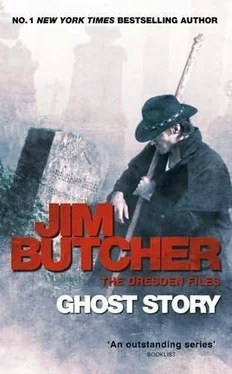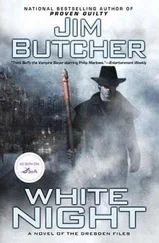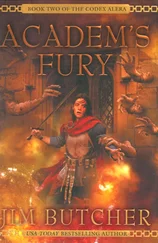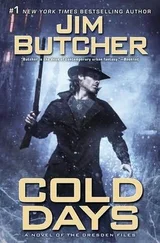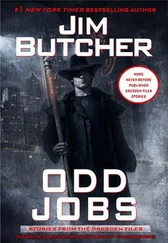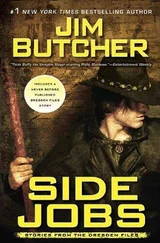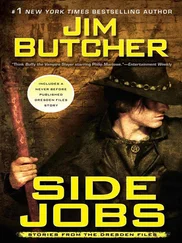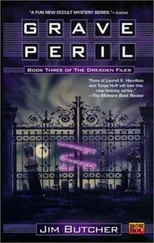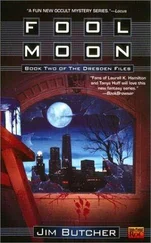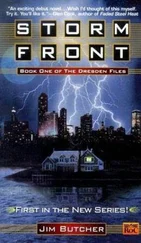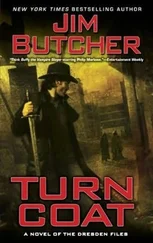“Is that bad?” Butters asked.
“A bad guy had the skull for a while,” I said. “Big-time dark mojo. So those memories Bob lost are probably everything he learned serving as the assistant to a guy who was almost certainly the strongest wizard on the planet—strong enough to openly defy the White Council for decades.”
“Meaning . . . he learned a lot there,” Butters said.
“Probably,” Bob said cheerfully. “But it’s probably limited to pretty much destructive, poisonous, dangerous stuff. Nothing important.”
“That’s not important?” Butters squeaked.
“Destroying things is easy,” Bob said. “Hell, all you really have to do to destroy something is wait. Creation, now. That’s hard.”
“Bob, would you be willing to take on Evil Bob?”
Bob’s eyes darted nervously. “I’d . . . prefer not to. I’d really, really prefer not to. You have no idea. That me was crazy. And buff. He worked out.”
I sighed. “One more thing to worry about, then. And meanwhile, I still don’t know a damned thing about my murder.”
Butters brought the Road Runner to a stop and set the parking break. “You don’t,” he said. “But we do. We’re here. Come on.”
Igritted my teeth and got out of Butters’s car, then paused to look at my surroundings. The piled snow was deep, and the mounds on either side of the street were like giant-sized versions of the snow ramparts that appeared every year in the Carpenters’ backyard. They changed the outlines of everything—but something was familiar.
I stopped and took at least half a minute to turn in a slow circle. As I did, I noticed a pair of fleeting shadows moving easily over the snow—wolves. Murphy’s comment about sending shadows to escort Butters home made more sense in context. I watched one of the wolves vanish into the darkness between a pair of half-familiar pines, and only then did I recognize where we stood. By then, Butters had taken Bob from his holder in the car and was carrying him in the handheld spotlight case again. He shone the light around for a moment until he spotted me, then asked, “Harry?”
“This is my house,” I said after a moment. “I mean . . . where my house was.”
Things had changed.
A new building had been put up where my old boardinghouse—my home—had been. The new place was four stories tall and oddly cubical in appearance. The walls fell even farther out onto the lawn than those in the old building had, encasing it in a strip of yard only slightly wider than my stride.
I moved close enough to touch the wall and pushed my hand inside. It hurt, but the hurt never varied as I pushed in farther. This was no facade. It was made of stone. I’m not kidding. Freaking stone. Basalt, maybe? I’m no stonemason. It was dark grey with veins and threads of green and silver running through it, but I could only see them from up close.
The windows were narrow—maybe nine inches wide—and deep. There were bars on the outside. I could see more bars on the inside , and there was at least a foot between them. The roof was lined with a staggered row of blocks—real by-God crenellation. As the pièce de résistance, gargoyles crouched at the corners and at the midpoint of each wall, starting up at the second floor and moving in three rows of increasingly ugly statuary toward the roof.
Someone had turned the ruin of my home into a freaking fortress.
A plaque hung over what had to be the main entrance. It read, simply, BRIGHTER FUTURE SOCIETY.
Butters followed my gaze to the plaque. “Ah,” he said. “Yeah. We named it that because if we didn’t do something, there wasn’t going to be much of a future for this town. I wanted Brighter Future Group, actually, for the initialism, but I got voted down.”
“Hell’s bells,” I said. I did some math. To build on the ruins of the boardinghouse, construction would have had to start practically the same day that I died. Actual stone is expensive to build with because it’s difficult and time-consuming. This place was as big as a small castle. It should have taken months and months and months to build. It had gone up in six. Probably significantly less, given the weather. “This place cost a damned fortune.”
“Meh,” Butters said, and walked to the front door. “Hang around a bit and you’ll take it for granted like the rest of us.” He entered a sequence of numbers on the keypad beside the door. They made a little mechanical clicking sound that reminded me of a manual typewriter. He put his hands back into his pockets and waited.
A moment later, a heavily accented basso voice emerged from a crackling speaker box. “Who goes there?”
“Butters,” he said. “With Dresden’s shade. Hi, Sven.”
The speaker made a rumbling sound. “Waldo,” it said, pronouncing it Valdo. “The night is dangerous. One day you will stumble across a fox and it will eat you.”
Roars of laughter erupted from the speakers—evidently, several other men were with the door guard.
Butters didn’t laugh, but he did grin. “I’ll just get stuck in his throat until you can haul your walrus ass over to him and save me, Sven.”
Louder laughter erupted from the speaker, and a voice half-choked with it said something in a language that had come from somewhere in northern Europe. There was a click, and Butters opened the door. I started to follow him in—and remembered, in time, to put my hand out and check the doorway first. My hand moved smoothly past the twelve inches of stone, but then hit something as solid as a brick wall where the doorway opened up into the entry hall.
“Uh, Butters,” I said.
He smacked the heel of his hand against his forehead. “Right, sorry. Please come in.”
The invisible wall vanished, and I shook my head. “It’s got a threshold. People live here?”
“Bunch of ’em,” Butters confirmed, and we went inside. “Lot of Paranetters come through for a little while when they don’t have a safe place to sleep. Uh, visiting Netters who are passing through town. Venatori, when they meet with us. That kind of thing.”
I felt anger stirring in me, irrational but no less real. “My home . . . is a supernatural flophouse?”
“And armory! And jail!” Bob said enthusiastically.
Ghosts can sputter in outrage. “Jail?”
“And day care!” Bob continued.
I stopped in my tracks and threw my hands up. “Day care? Day care?! ”
“People have kids, man. And they have jobs,” Butters said in a gentle voice. “The Fomor aren’t above using children to get what they want. High-risk kids come here on workdays. Now, shut up, Bob. And get off your high horse, Harry. People need this place.”
I turned my gaze to Butters and studied him for a minute. The little guy had come a long way from the somewhat timid, insecure man I’d first met years before. That Butters would never have said anything like that to me.
Or maybe he was the same guy. Butters went right to the wall for the sake of the truth, even when it cost him his job and got him locked up in a nuthouse. He was a man of principles.
And he was probably right. This wasn’t my home anymore.
We passed the guard station after we got buzzed through a security gate. Four of the biggest, toughest-looking men I’d ever seen were stationed there. They wore biker leathers—and swords. Their muscles swelled tight against their skin, their beards bristled, and their uniformly pale eyes watched us pass with calm attention.
“Einherjaren,” Butters said quietly. “Soldiers of Valhalla, if they’re telling the truth.”
“They are,” I replied just as quietly. “Where did we get them?”
Читать дальше
